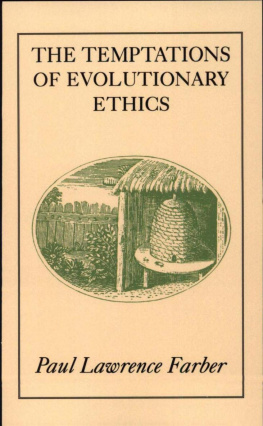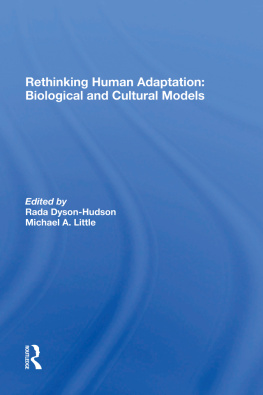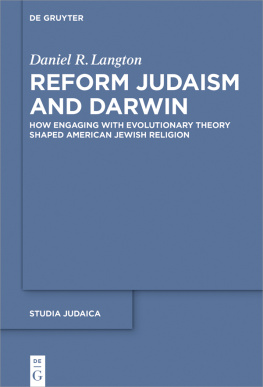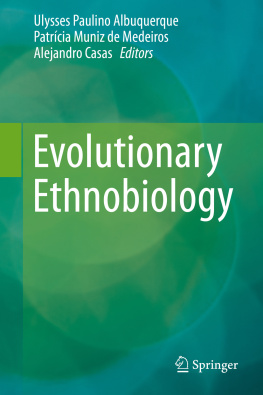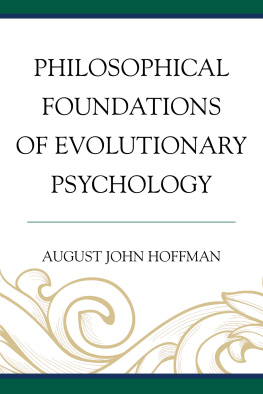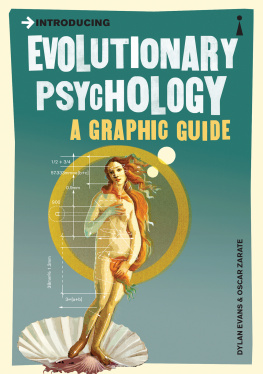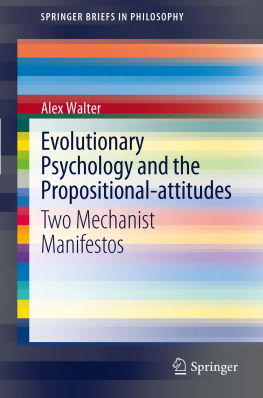The Temptations of Evolutionary Ethics
Paul Lawrence Farber
UNIVERSITY OF CALIFORNIA PRESS
Berkeley Los Angeles Oxford
1994 The Regents of the University of California
In memory of
Charles Farber
University of California Press
Berkeley and Los Angeles, California
First Paperback Printing 1998
Copyright 1994 by The Regents ofthe University of California
Library of Congress Cataloging-in-Publication Data
Farber, Paul Lawrence, 1944
The temptations of evolutionary ethics / Paul
Lawrence Farber.
p. cm.
Includes bibliographical references and index.
ISBN 0-520-21369-6 (pbk: alk. paper)
1. Ethics, EvolutionaryHistory. I. Title.
BJ1298.F37 1994
171'.7dc20
94-5507
CIP
Printed in the United States ofAmerica
1 2 3 4 5 6 7 8 9
The paper used in this publicationmeets the minimum requirements of American National Standard for InformationSciencesPermanence of Paper for Printed Library Materials, ANSI Z39.48-1984 
In memory of
Charles Farber
One lesson at least has been taught usso forcibly by our historical and critical studies in the theory of Ethics thatwe ought never to forget it in future. This is the extreme complexity of thewhole subject of human desire, emotion, and action; and the paradoxicalposition of man, half animal and half angel, completely at home in none of themansions of his Father's house, too refined to be comfortable in the stablesand too coarse to be at ease in the drawing room. So long as we bear thislesson in mind we can contemplate with a smile or a sigh the waxing and waningof each cheap and easy solution which is propounded for our admiration as thelast word of "science." We know beforehand that it will beinadequate; and that it will try to disguise its inadequacy by ignoring some ofthe facts, by distorting others, and by that curious inability to distinguishbetween ingenious fancies and demonstrated truths which seems to be thebesetting weakness of men of purely scientific training when he steps outsidehis laboratory. And we can amuse ourselves, if our tastes lie in thatdirection, by noticing which well-worn fallacy or old familiar inadequacy ischaracteristic of the latest gospel, and whether it is well or ill disguised inits new dress.
C. D. BROAD
Contents
Acknowledgments xi
Introduction 1
1. Charles Darwin 10
2. Darwinian Ethics 22
3. Evolutionary Ethics: HerbertSpencer 38
4. Darwinian Critics: Thomas HenryHuxley and Alfred Russel Wallace 58
5. Early Reception and Evaluation ofEvolutionary Ethics: 1870-1890s 79
6. Evolutionary Baroque and ItsFuries: 1890-1920 96
7. Syntheses, Modern and Otherwise:1918-1968 118
8. Evolutionary Ethics Since 1975:Dodo, Phoenix, or Firebird? 148
9. Recapitulation, Lessons, andQueries 168
Bibliography 177
Index 207
Acknowledgments
My father, to whom this book isdedicated, used to make distinctions when I was young which puzzled me. Hewould say things like, "Not fair? Do you want to talk about the law orabout equity?" Or, "Don't ask me why, that's the way it is."Like many of those who are discussed in this book, he knew right from wrong butwas not sure why. His remarks set me thinking about ethics at an early age.
The research for this book could nothave begun or been completed without the resources of major libraries. I wasfortunate to have a few months to begin my research in the reading room of theBritish Library in Bloomsbury during the winter of 1983 while I was teaching ina Northwest Interinstitutional Council for Study Abroad program. This wasfollowed by a sabbatical year in Cambridge in 1988-89 where I made use of theCambridge University Library and the libraries of Trinity College, RobinsonCollege, and the Department of the History and Philosophy of Science. Inbetween, the Oregon State University library has supplied my needs and when notable to, has very efficiently obtained the items through interlibrary loans.The librarians in all of these institutions have been helpful, and I feelgreatly indebted to them.
It would not have been possible tospend a year in Cambridge had it not been for a National Endowment for theHumanities (NEH) grant (RH-20853-88). Dan Jones of the NEH was helpful inguiding me through the process of applying.
I have been encouraged and helped bymany individuals. Maureen Chandler, Marsha Richmond, Jim Secord, Keith Benson,Tom Franzel, Maggie Osler, Michael Ruse, Ernan McMullin, Julie Curtis, MikulsTeich, and Jon Franklin aided me in different ways. The Warden and Fellows ofRobinson College, by extending to me a bye-fellowship, made my Cambridge stayvery pleasant and profitable. Joseph Needham spent time answering questions,and Mar-
xii
tha Morris spent time telling methings about which I had not asked. Karla Russell guided me through computermanuals and provided secretarial backup that can be described withoutexaggeration as optimum. Mike Mix and Keith King, with whom I was involved inanother project, were patient and understanding with my schedule, and FredHorne encouraged my work all along. As has been true for more than twenty-fiveyears, Vreneli Farber was behind the scenes, this time single parenting forthree months with twin kindergarteners and making it possible in many otherways for the work to get done.
Introduction
Roughly fifteen years ago anundergraduate came to see me for advice about graduate school. He was a bright,sincere student and elicited a sympathetic reaction from me. Like many studentsthen, especially those who were reacting to the recent Vietnam War as well asto what appeared to be an imminent energy crisis, he was profoundly concernedabout the state of the world. During our conversation he said that he thoughtwe might be able to deal better with current problems if we were to have anunderstanding of the nature of man.[1] He went on to explain thathis goal was to do a master's thesis on the nature of man because "nothinghad been done on the subject."
I was, understandably, amused by hisnaivet and appalled by his ignorance. How a student could reach the last yearof college without ever having had a glimpse of the enormous body of literatureon human nature said a great deal about the failure of our educational system.I gave the student a short list of major philosophers. When I finally saw himagain more than a year later, he did not refer to the subject. (He is currentlyan accomplished historian.)
But I thought quite a few times ofthat conversation, for that student was on to something. Our picture of man isout of focus, not for lack of writing on the subject but rather for lack of asatisfying perspective. Our conversation reminded me not only that there wassomething wrong with our highly specialized and fragmented educational system,which had fostered his opinion concerning the deficient state of literature onhuman nature, but also that there was something problematic about theliterature he had been reading. He was, I came to realize, reacting againstpopularizations of "sociobiology." In his view, those attempts toexplain
[1] He was using the term in agender-free sense, as I shall be doing also.
human nature from an evolutionaryperspective could not provide an adequate moral or political vision for thetwentieth century. The issue is hardly a new one, for the attempt to understandthe nature of man from an evolutionary point of view is as old as the theoryitself, and scientists, philosophers, social scientists, and other writers havedebated the problem for well over a century. During the last twenty yearsconsiderable attention has been paid to the issue. Many of the topics currentlybeing discussed on the implications of evolution for humans, however, have beentreated at great length in the past, and quite a few of the contemporaryarguments are simply recycled versions of earlier ones.
Next page
